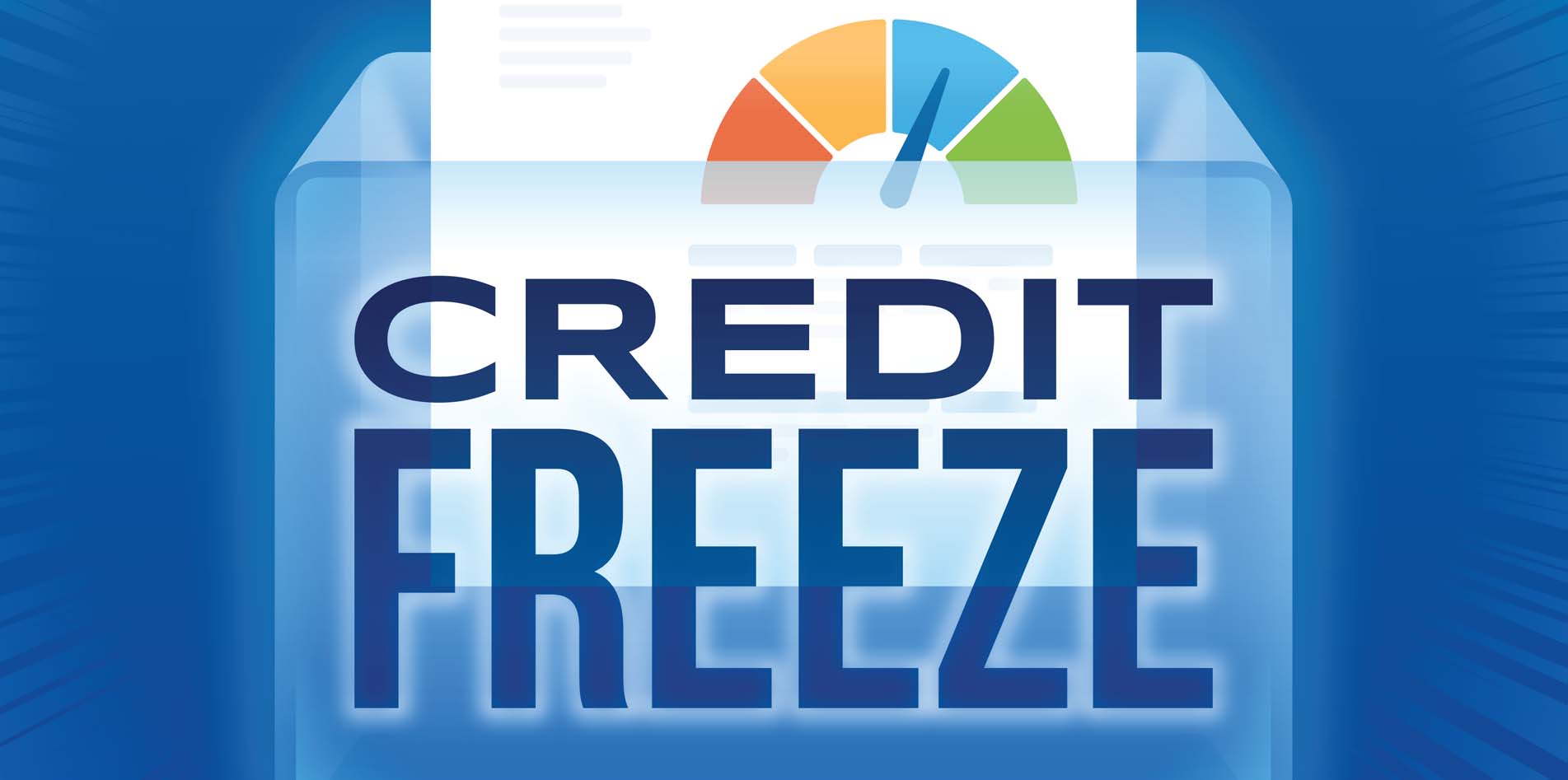
Free Credit Freezes Have Arrived. Here's What You Need to Know:
November 25, 2025
A credit freeze can be one of your most effective lines of defense to protect yourself from fraud and identity theft. However, before placing a freeze of your own, you should be aware of all the details that freezing your credit involves.
Credit Freeze FAQs
What is a credit freeze?
A credit freeze, or a “security freeze,” is a request you submit separately to each of the nation’s 3 credit agencies (Equifax, Experian and TransUnion) to lock down your credit report. The freeze restricts anyone from pulling your credit reports without your approval, making it more difficult for identity thieves to apply for credit cards or loans in your name.
When should I consider freezing my credit?
If you’re concerned about identity theft, data breaches or unauthorized access to your credit report — especially in the wake of security breaches like the Equifax hack — you might want to consider placing a freeze on your credit. Since most businesses will never open a credit card or loan account for anyone, without first checking into their credit history, the freeze will make it extremely difficult for identity thieves to get past that extra line of defense.
If you don’t want to place a credit freeze, you could also consider a credit lock or at the very least, a fraud alert.
How do I freeze my credit report?
You must contact each one of the three main credit bureaus — Equifax, Experian and TransUnion — to request a freeze:
You will be asked to provide your name, social security number, birth date, address, and other personal information. Upon receiving your request, the 3 credit agencies will give you a PIN number to keep in a safe place, and use when you want to lift the freeze. The freeze will remain in place, until you contact the credit bureaus again to either temporarily lift the freeze or remove it altogether.
When and how should I lift my security freeze?
If you plan to apply for a loan or credit card, purchase new insurance, or pass an upcoming background check for employment, you will need to lift or “unfreeze” your credit so the business can access your report. It will also be free, and law requires that the freeze be lifted in less than an hour. However, we recommend lifting your credit freeze at least 3 days before you plan to apply for a job or loan, just to be safe.
To unfreeze your report, you will need to have the PIN that each agency supplied you with when you originally requested the freeze.
Who can still see my credit if it’s frozen?
Even if your credit is frozen, certain entities will still have access to your credit information, including:
- Existing creditors or debt collectors (who you currently have a loan with)
- Government agencies, in response to court or administrative orders, subpoenas or search warrants
Anyone else who requests your file from one of the three agencies will receive notice that your file is frozen, and nothing else.
Can I open new credit accounts or apply for a loan while my credit is frozen?
No, you must first lift your freeze to get a new credit card or loan. You can either lift it for small period of time, or lift it permanently (until you choose to unfreeze it).
Will a credit freeze affect or lower my credit score?
No, a credit freeze does not affect your credit score at all.
Can I still order my free annual credit report while my file is frozen?
Yes, you can still order a copy of your credit report once every year, and this is not affected by freezing or unfreezing your own report. Visit www.AnnualCreditReport.com to order your free credit report.
Am I able to freeze family members’ credit files, too?
You can request a free freeze for your children who are under 16, any dependents over that age, or a loved one over whom you have a valid power of attorney. Remember, every person has their own credit score, which means you and your spouse will need to place three freezes (one for Equifax, Experian and TransUnion) for every individual.
Is a Credit Freeze the same as a Credit Lock?
They are similar, but not the same.
A “credit freeze” is free, under federal law, and it restricts access to your credit report. But to unfreeze your file, you must call the credit bureaus and submit a request.
A “credit lock,” on the other hand, is not free. It also restricts access like a credit freeze, but with the added ability to unlock your credit report immediately through your own computer or mobile device (without having to reach out to the credit bureaus). The three credit bureaus sometimes promote their credit lock services, since they likely carry a monthly fee.
What’s the difference between a Credit Freeze and a Fraud Alert?
A “fraud alert” is less severe than a freeze. It alerts lenders that your data may have been compromised, and that they’ll need to take extra steps to verify your identity before approving you for a loan or new credit account. The new federal law also extends the length fraud alerts must remain on your credit reports, from 90 days to one year.
The Bottom Line
It’s important to remember that while a security freeze is a great method for prevention of identity theft, it cannot guarantee you will not be a victim of identity theft. There are many types of identity theft besides credit fraud (including government benefits, insurance, phishing, card skimming, romance scams, etc.). So the most important thing is to remain vigilant and monitor all of your financial accounts on a frequent basis.
To stay up-to-date on the latest financial security tips, subscribe to the SNB newsletter and get monthly updates delivered to your inbox.